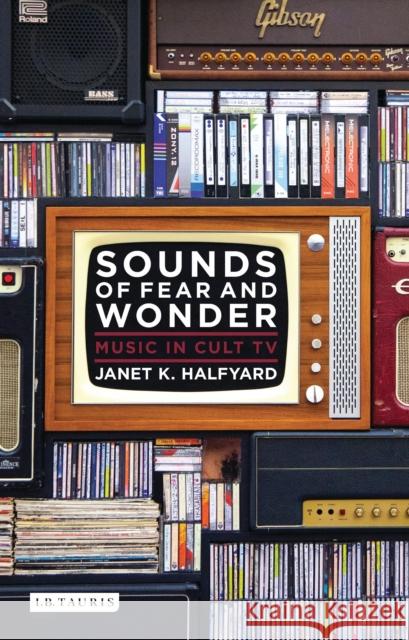Sounds of Fear and Wonder : Music in Cult TV » książka
Sounds of Fear and Wonder : Music in Cult TV
ISBN-13: 9781784530297 / Angielski / Miękka / 2016 / 232 str.
How does music enrich and define cult television series? Analyzing theme tunes and scoring on television, the book reveals how composers construct a series' identity using musical idioms and instruments, and how characters and plot developments are enhanced by their musical accompaniment. The different scoring strategies employed in science fiction and horror-based genres, whose shows include Star Trek or Dr. Who, are considered alongside cult shows set in our reality, such as Dexter, The Sopranos, and Queer as Folk. These discussions are complimented by in-depth case studies of musical approaches in three high-profile series: Buffy the Vampire Slayer, Battlestar Galactica, and Lost. Overall, the book provides a guide to the main types of scoring, including theme music, final scene music, end credit music, and recurring narrative themes.
Whereas films typically extend for two or three hours, a television programme-and particularly cult TV series-may span more than a hundred hours of episodes released over several years. Complex and idiosyncratic scores develop to accommodate these elongated time spans and their evolving narratives. The book presents the Buffy/Angel love theme on Buffy the Vampire Slayer as an exemplar, showing how music links elements of a series across episodes and seasons, and often presages plot revelations. It furthermore explores the work of television composers, Aaron Copland and Jerry Goldsmith, unpacks how singing is a cue for fantasy in "real world" dramas, such as Ally McBeal and Desperate Housewives, and explains how musical elements such as timbre, tonality, and the triton can evoke powerful abstract concepts like evil.
Prior studies have privileged the analysis of popular music in television. Music in Cult TV redresses this imbalance by focusing primarily on composed scores, while nevertheless considering certain important uses of popular music. Written from a musicological standpoint but fully accessible to non-musicologists, the book is a significant contribution to the study of television, music, and their interconnection.











